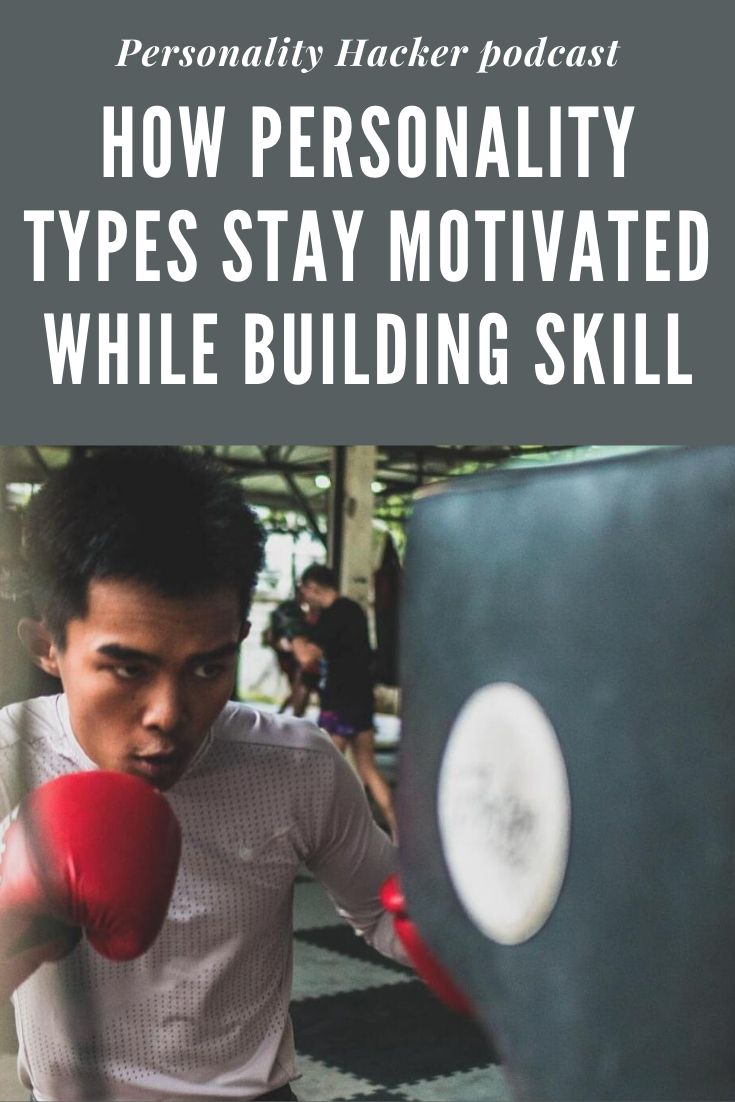Download Episode Here – right click link and select “Save Link As…”
In this episode, Joel and Antonia talk about how different personality types can create and sustain motivation while they build skills.
In this podcast you’ll find:
-
The 80s movie “skill-building montage” phenomenon – and how this contrasts with the societal messaging young people receive around building skills today.
- The disappointment that can come with today’s mindset
- What’s missing in today’s messaging?
- The kick-back message from the younger generation
-
Skill development – how is this different from hard work and effort?
- The idea of skill development to create value
- Why do people avoid skill development work?
-
Previous podcasts that discuss skill development through models and frameworks:
- Check out our episode on Luck Vs Hard Work
- Our podcast about Using The Stephen Covey Competence Model For Growth (based on his book: The 7 Habits of Highly Effective People )
-
The phases of skill development people go through according to the Competence Model:
- Unconscious incompetence
- Conscious incompetence
- Conscious competence
- Unconscious competence
-
How can you get through the tough parts of skill development?
- The importance of tools and motivation
- What do the 16 personality types need to generate motivation for skill development based on their primary judging function?
-
Accuracy (Ti) – xxTPs:
- Thoughts on creating clarity
-
Harmony (Fe) – xxFJs:
- What does healthy support look like?
-
Effectiveness (Te) – xxTJs:
- The power of having a plan
-
Authenticity (Fi) – xxFPs:
- Inspiration to create motivation
-
Feedback – why is it an important part of skill development?
- What does it look like when we reject feedback?
- The journey to empowerment and positive self esteem
To subscribe to the podcast, please use the links below:
Subscribe with iTunes
Non-iTunes Link
Soundcloud
Stitcher
Google Play
Spotify
Radio Public
PlayerFM
Listen Notes
If you like the podcast and want to help us out in return, please leave an honest rating and review on iTunes by clicking here. It will help the show and its ranking in iTunes immensely! We would be eternally grateful!
Want to learn more?
Discover Your Personal Genius
We want to hear from you. Leave your comments below…



Share:
Podcast - Episode 0325 - Surviving Quarantine As An Introvert or Extravert
Podcast - Episode 0327 - Noble Vices Of Each Personality Type
18 comments
“You don’t just need hard work, you also need skills.”
Me: “well i know that, of course you need skills. seems like this podcast will be more generic than usual”
5 mins later
“What people don’t know is, you’re going to massively suck for a while and may not even want to do it anymore”
Me: feel personally attacked
Thanks for this podcast! This made me realized a lot of things, essential things I didn’t want to realize ? – infp
Hello Joel and Antonia, I was listening to the INFx Interview Podcast and really enjoyed it’s content (as I do with most of your podcasts on my morning ride), so much so that immediately looked for it’s cousin podcast “Personal Lessons From INTP and INTJ Interviews”, but to my dismay, there was nothing to be found. I think it would be really great if you guys could give us a soundbite-like piece of that sweet sweet information from the INTx program.
~ M 16 INTP
This is a game changer for me. I’ll admit I have looked to personality typing to find the right ways of doing me. Thinking that once I know the right formula for ‘my good life’, that life will come easy. And I have long felt discord when applying this unrealistic belief to meet the world.
It makes sense that we are not good at something we have not spent effective time on. And defeating when someone may have told us we are good at something as a child, but as an adult we realise we are not. Great insight ? Thankyou ?
I agree, but I still think that talent is important. When bitten by the radioactive spider, Spiderman wasn’t motivated to become a math genius. He was motivated to do the things in which he suddenly had innate talent, or the things he was suddenly already good at.
I think what often happens is that we try some new activity and figure out that we’re talented at it (perhaps because others who are trying it don’t perform as well as us). That early success can motivate us to practice and learn more, so that we can do even better. After all, I think most people probably enjoy being successful and good at something.
Conversely, if we we try some new activity and we’re bad at it, we’re more likely to give up. We may think that it will take a ton of work to even become average, and may even consider it impossible to become highly skilled.
Hi! Can I message you about your thoughts on feedback loops and their role/how they are used in personality development? Complex systems/feedback mechanisms are a piece of my research and I’d love to talk more about how you guys are trying to use/teach them in your practice.